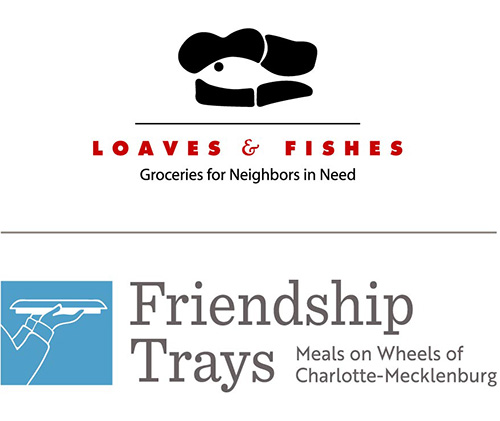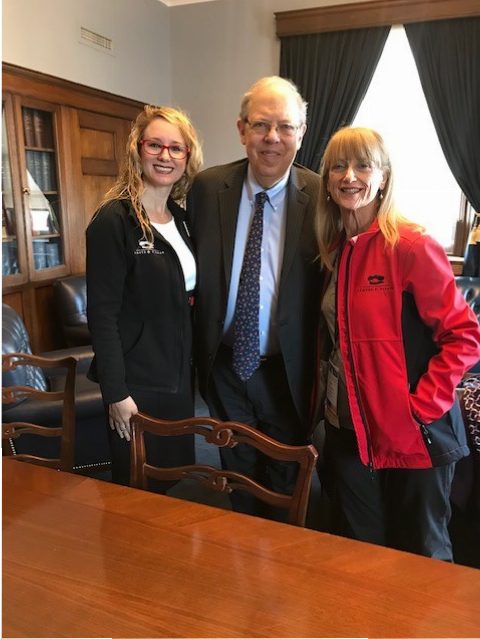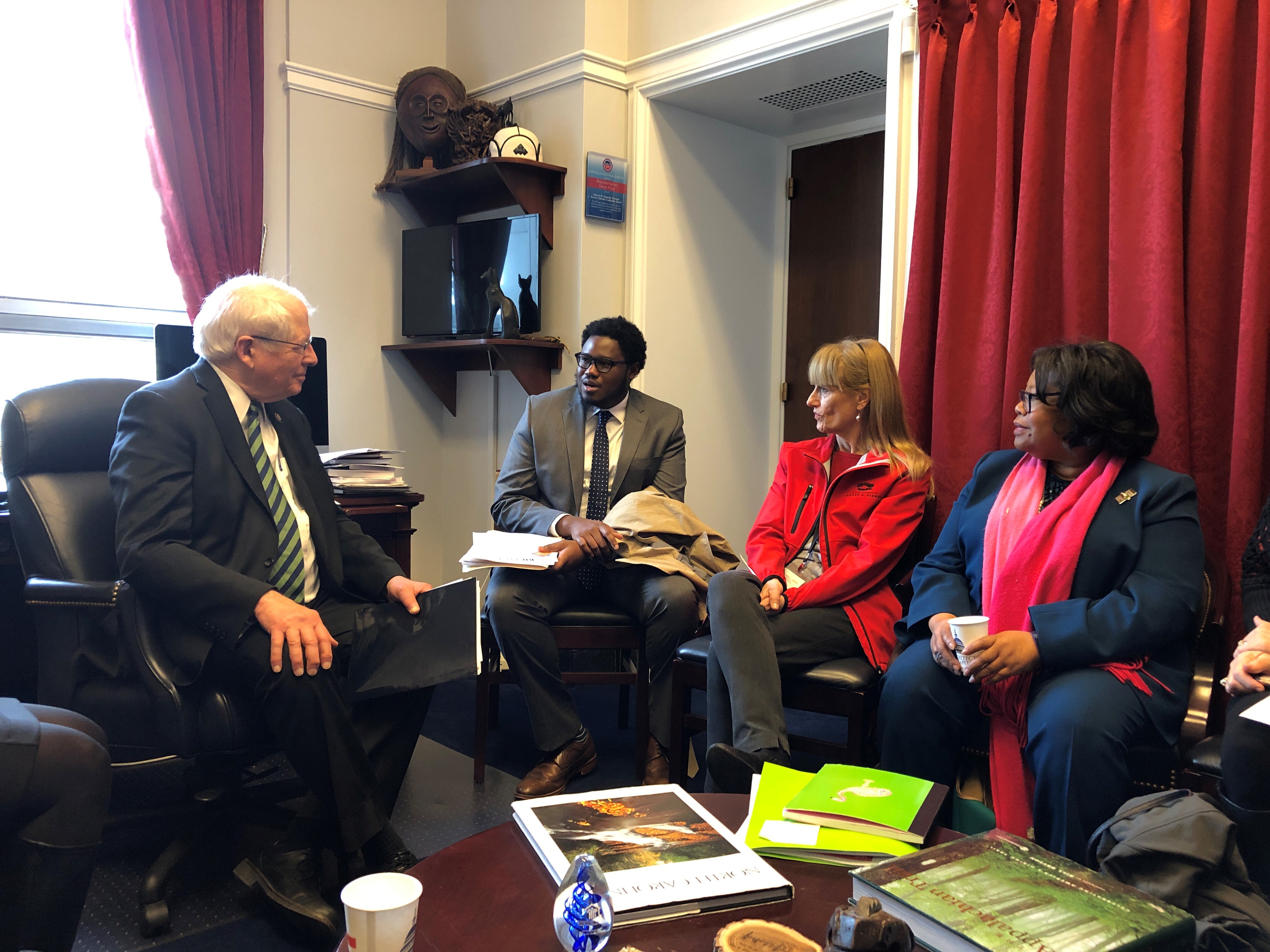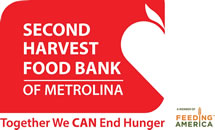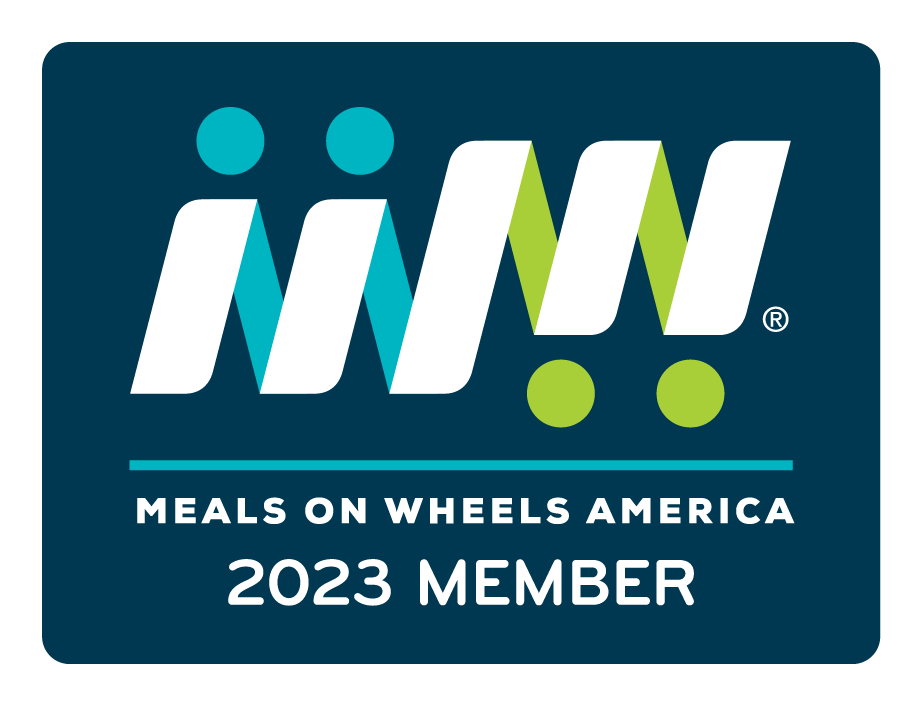Hunger, Housing and Health – Takeaways from Hunger Fighting in D.C.
From Shay Merritt, Loaves & Fishes Advocacy Coordinator
I just returned from attending the Anti-Hunger Conference in Washington DC with our Executive Director, Tina Postel. The conference is a joint production of the Food Research and Action Center (FRAC) and Feeding America.
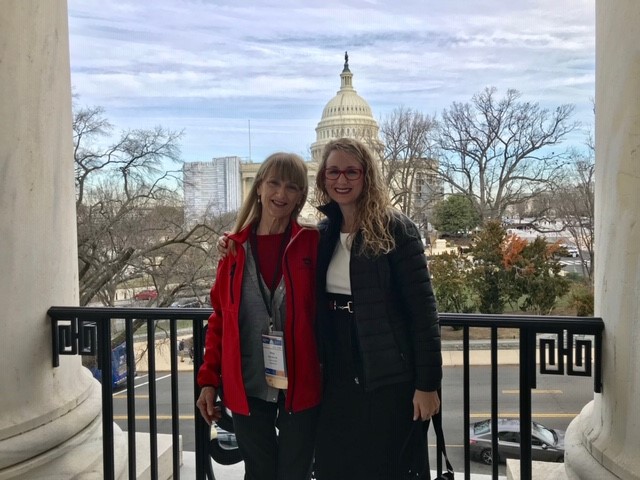
Shay Merritt, Loaves & Fishes Advocacy Coordinator and Tina Postel, Loaves & Fishes Executive Director attending the FRAC Anti-Hunger Poverty Conference in Washington, DC
I came back inspired and energized by the wonderful work being done around the country by hunger fighting agencies of all sizes and services. I detected no jealousies of each other’s successes, only pride in the work that we all strive to do every day to feed hungry people in America and the desire to do more. We shared ideas and information, listened to motivational speakers, celebrated successes, bemoaned failures and resolved to continue the fight against hunger to the best of our abilities and come together next year.
I had three big takeaways. The first is that we now talk about the “intersectionality” of hunger with other issues, especially housing. People who are hungry generally need other services whether it is financial education, assistance with housing/utilities, healthcare, mental health—hunger rarely travels solo. If you need food, and you do not have a stable living situation, you may not have the resources like utensils, pots and pans, refrigerator, stove or an oven to store and prepare healthy food. If your utilities are off, you can’t cook. If you are ill, you may not be able to eat and digest certain foods. Even when you have access to other services, if you are experiencing hunger, you may not be able to fully take advantage of them.
The second takeaway is the rising awareness of the relationship between health and hunger. For many agencies, the focus has been to keep people alive by feeding them with the best foods they could provide, much of it nonperishable. The health industry has begun looking at food as “pharma.” Can access to nutritious foods prevent or treat certain diseases/conditions like diabetes, hypertension and obesity or play a role in the treatment? All of us want to increase the nutritional quality of the food we provide, and we know that the best way to do that is to distribute more fresh foods. That will require a shift in the way many agencies operate. Fresh foods may cost more. Freezers and coolers require more space, are big ticket items and expensive to operate. If fresh foods, in particular produce, are donated, there is still the need for transportation and storage, and you are fighting the clock to distribute in a timely manner. These aren’t excuses. These are issues we must analyze and figure out how to overcome. The answer may be that we do not do it all ourselves. We collaborate and partner with other agencies to take on the piece that we each do best.
The third takeaway is that the dam between hunger and disaster for millions of Americans is SNAP benefits, known to many as food stamps. Currently the minimum benefit is $16/month. Our District 12 Representative Alma Adams announced her introduction of the Closing the Meal Gap Act on February 26th, the final day of the conference. The bill would raise the $16 to $25 and increase benefits for seniors and families with children. 1.4 North Carolinians, 1 in 8, receive SNAP benefits. In Mecklenburg County, 1 in 8 or 125,000 individuals living in 55,000 households benefit from SNAP dollars. Two thirds of these households include children, over 40% have at least one member who is working and over 30% of the households have a member who is disabled. North Carolina residents receive $2.14 billion dollars in SNAP benefits. Since each SNAP dollar generates $1.70 in economic activity, SNAP benefits add $3.64 billion to the state’s economy each year.
The above are my three top of mind takeaways, but I have many more. With over 40 million Americans who live at or below the poverty level and experience food insecurity, including 14 million children, it is good to know that there are thousands of agencies across the country working to help them. It is important for us to feed people who are hungry so that they can achieve their personal best as healthy, happy, productive citizens. But we also need to work on creating systems and programs that make this possible Please join us in the fight against hunger!
 menu
menu
